| > Home > Reading Together |
|
Reading Together® programme
Reading Together® is a gold standard, research-based workshop programme which helps parents/whānau to provide effective support for their children's reading (and thereby also supports teachers in their classroom programmes).
The programme has been shown to raise children's reading achievement in a significant and sustained manner, and to improve relationships between children and parents, and between parents and teachers (the original research was a randomised, controlled trial - the gold standard) [1, 2]. It has been successfully implemented by teachers in New Zealand since its development in 1982 by Jeanne Biddulph MNZM, and teachers find that the programme is practical and manageable [3, 4].
Reading Together® has been cited in OECD and other international reports, and was supported by the New Zealand Ministry of Education. The Ministry of Education reported that "Reading Together® can build trust, support children by supporting parents, increase access to reading, build productive partnerships, and counter harm." [5]
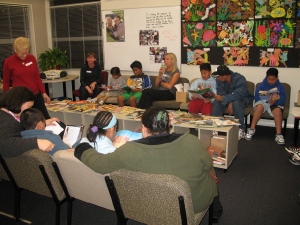
Former Minister of Education Jan Tinetti: "The investment the Government has made into evidence-based and community-led projects is delivering positive results evidenced in the latest evaluation from the Reading Together® programme, that supports parents and whānau to encourage strong literacy at home. An example in the Samoan community, evaluation showed a positive change in reading habits for families, with almost 90 percent of parents feeling more confident in helping their children learn to read." [6]
[Former] Associate Education Minister Dr Pita Sharples credits the programme's whānau focus for its success. "There are other programmes out there but the thing about this one is that the families are involved." [7] "[Reading Together®] is receiving absolutely glowing feedback." [8]
Warwick Elley, Emeritus Professor of Education: "I was working closely with Jeanne Biddulph in Christchurch [in the early 1980s] when she undertook her thesis on Reading Together®, and was impressed with its impact in that study. The notion of helping parents to help their own children with a series of workshops was a delightfully new approach to a long-standing problem, but many were sceptical about whether parents would come, whether they would stay the course and whether they would have the patience to implement the suggestions made. Thankfully the critics were proved unduly pessimistic, and the continuing success of the programme, during the period when the Biddulphs were funding it themselves and after [Sir] Pita Sharples saw its potential, and gave it the thumbs up for Government funding, was a well-justified reward for Jeanne's insight and admirable efforts." [9]
Dr Laurie Thew MNZM, former Principal of Manurewa Central School: The Reading Together® programme is "the closest thing to a silver bullet we've ever seen" [6]. "We've found it outstanding. It not only helps with reading, but this intervention also improves the rest of a child's schooling. The relationships between homes and school improve, and parents certainly appreciate the support." [10]
Liz Horgan MNZM, former Principal of St Joseph's School Otahuhu: "We have found Reading Together® to be the most effective home/school programme we have run. ... It is truly a wonderful programme to be involved in and the feedback we have received from parents is heart-warming, humbling and always extremely positive." [11]
New Zealand Government Release: "Research has identified Reading Together® as a low-cost, high-impact programme with strong evidence of effectiveness. For example, children have gained a full year in their reading level within 12 weeks of starting the programme." [12]
The Reading Together® Project
The Reading Together® Project was a collaboration between the New Zealand Ministry of Education, schools, community libraries and the National Library.
Independent reports on the Reading Together® Project:
"The Reading Together® programme has had a profound effect, not just in improving reading levels for a particular child but in involving entire whānau in implementing better ways of relating to their tamariki and facilitating their learning. ... Such changes are remarkable for a four workshop programme." [13]
SOURCE: Report PDF is available here.
"... the 2013 Reading Together® Project, through supporting schools to implement the Reading Together® programme, continues to make a real difference in attitudes toward reading and consequently in reading achievement. It is instrumental in helping to break the negative cycle of disengagement with reading that exists in many whānau. ... Schools reported some dramatic improvements in reading achievement." [14]
SOURCE: Report PDF is available here.
"This report examines the feedback provided by caregivers and teachers on changes in achievement and engagement for 479 students whose caregivers participated in the Reading Together® workshops. ... 97% of the responses attributed gains in either achievement or engagement with reading to caregiver participation in the Reading Together® workshops." [15]
SOURCE: Analysis PDF is available here.
"Schools reported some dramatic improvements in reading achievement and the gains in reading achievement flowed on into other areas, particularly in writing. ... The most inspirational benefit of the Reading Together® Project is that it provides a basis for a lasting generational change in attitudes to reading." [16]
SOURCE: Report PDF is available here.
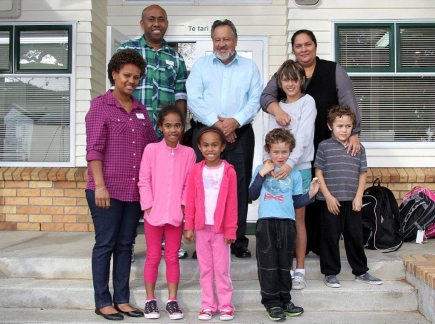
Sir Pita Sharples and families who have participated in Reading Together® at Manurewa Central School. Photo used with permission from Dr Laurie Thew and Piera Tombolato.
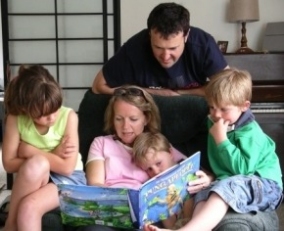
Key Points
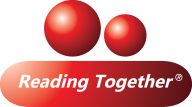
Reading Together®:
- enables parents/whānau to learn sound and specific ways of helping with reading at home
- is a programme comprising 4 workshops over 7 weeks, with each workshop lasting 1 hour and 15 minutes
- focuses on an area of learning (i.e. reading) that all parents recognise as being important
- is practical, user friendly and manageable for teachers, librarians, parents/whānau and children
- enables teachers, parents/whānau and librarians to work together in informed and collaborative ways
- develops more positive relationships between children, parents/whānau, teachers and community librarians
- enables teachers, parents and librarians to support children's reading more effectively than any of them can achieve if they are working independently of each other
- is effective when it is implemented as described in the fully-scripted Workshop Leader's Handbook
- has a sound theoretical and research basis.
Reading Together® provides effective support for all children & their parents/whānau i.e.
- children who are struggling with reading, or reluctant to read, or reading competently
- children from junior primary to junior secondary school levels
- children and parents from diverse language/literacy, cultural, educational and socio-economic backgrounds
Primary purpose of Reading Together®:
- To help all children to become keen, capable readers who have the range of language and literacy competencies they need to function confidently and effectively within their communities and wider society.
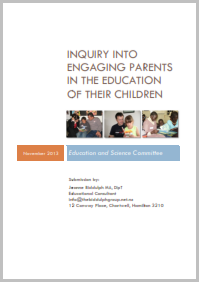
Best Practice
The Reading Together® programme is a best practice example of an approach that enables parents and communities to support their children's learning.
For further information (including effective strategies for engaging parents, families, whānau, aiga, and communities in formal education), please see Jeanne Biddulph's Submission on the Parliamentary Inquiry into engaging parents in the education of their children.
Reading for pleasure
"Reading for pleasure is one of the most important indicators for the future success of a child, improving literacy, learning, health and wellbeing and social outcomes."
SOURCE: Quote from Reading for pleasure.
History of Reading Together®
A history of Reading Together® in New Zealand is available here, and includes acknowledgements of some of the dedicated educators and librarians who have implemented and/or supported the Reading Together® programme since the early 1980s, thereby providing informed and effective support for tens of thousands of families/whānau. Learn More
